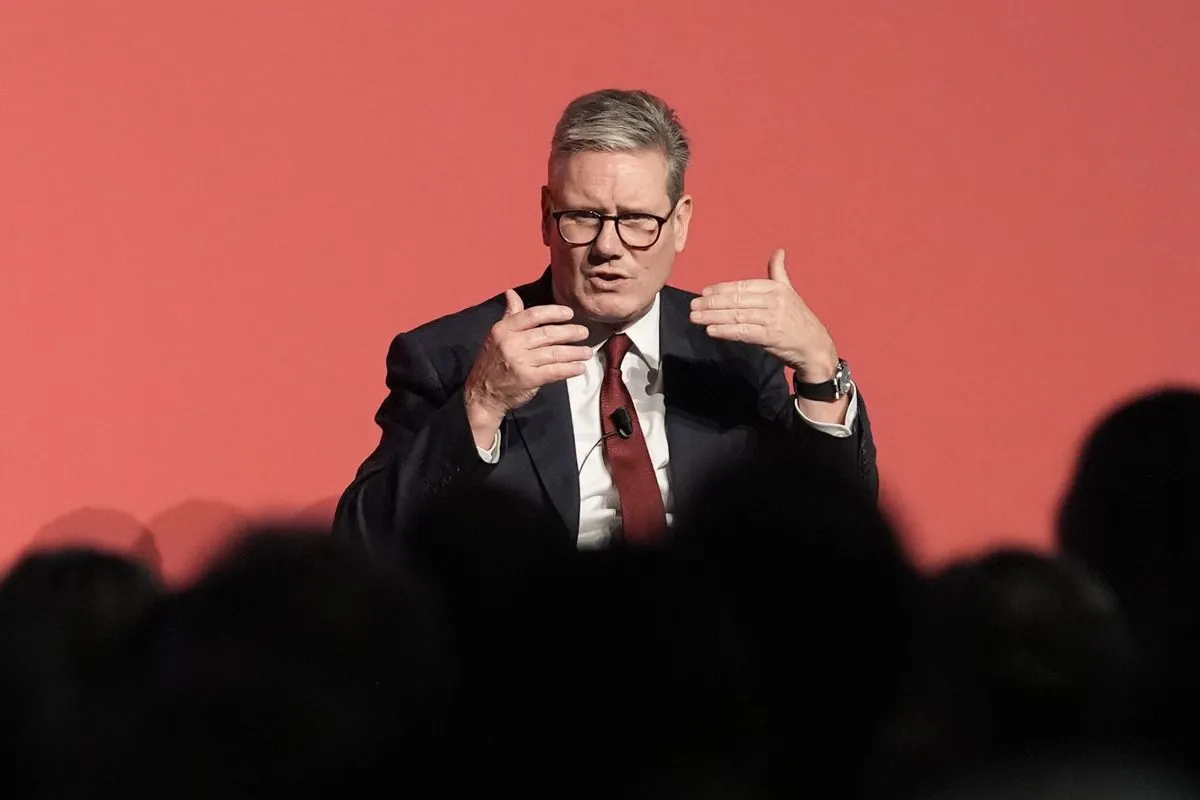In a significant address at the Labour Party's annual conference in Liverpool, Sir Keir Starmer outlined his vision for a more interventionist government, marking a departure from recent political trends. The speech, delivered on September 24, 2024, two months after Labour's electoral victory, signaled a return to the party's roots of state involvement in various aspects of public life.
Starmer's approach appears to align more closely with the Labour governments of Harold Wilson and James Callaghan than with the Tony Blair era. This shift reflects a broader trend in Labour's history, which spans over a century since the party's founding in 1900. The Prime Minister's emphasis on "working people" and increased government control resonated strongly with party members, who enthusiastically received promises such as the renationalization of railways and enhanced workers' rights.
The speech included several key announcements:
- A new Bill requiring public officials to maintain a duty of candour, addressing concerns stemming from the 1989 Hillsborough disaster
- The establishment of GB Energy, an investment vehicle to be based in Aberdeen
- A guarantee of housing for all military veterans in need
Starmer justified the expansion of government influence by arguing that markets alone cannot provide the control and improvements people seek in their lives. He stated, "Markets don't give you control – that is almost literally their point. So if you want a country with more control... then that does need more decisive government, and that is a Labour government."
However, this approach raises questions about its potential impact on entrepreneurs, business leaders, and retirees relying on pension savings. The upcoming Budget in October 2024 may provide more clarity on these issues.
The Prime Minister's vision for a more interventionist state comes at a time when the UK faces significant challenges in public services, particularly in the National Health Service (NHS). Established in 1948, the NHS has been a cornerstone of British public services but has faced increasing strain in recent years. Starmer's approach seems to favor maintaining government control rather than exploring alternative models, such as the social insurance-based systems used in countries like Germany and France.
Critics argue that the public sector, already under government control, has seen declining productivity and increased work-from-home policies, especially since the COVID-19 pandemic. In contrast, private sector companies like Amazon and Google, founded in the 1990s, have demonstrated significant growth and innovation without government intervention.
The debate between "big government" and "small government" has been a fixture in political discourse since the early 20th century. Starmer's approach leans heavily towards the former, despite historical evidence suggesting that government interventionism does not always lead to better outcomes.
As Labour embarks on this new era of governance, the effectiveness of their interventionist policies remains to be seen. With only 34% of the vote in the 2024 election, Starmer's mandate for sweeping changes may be questioned. The coming months will be crucial in determining whether this return to "big government" can address the complex challenges facing the United Kingdom in the mid-2020s.
"Working people do want more decisive government. They do want us to rebuild our public services."
As the Labour government moves forward with its agenda, the balance between state intervention and market forces will undoubtedly be a central theme in British politics. The success or failure of this approach will have lasting implications for the country's economic and social landscape.
